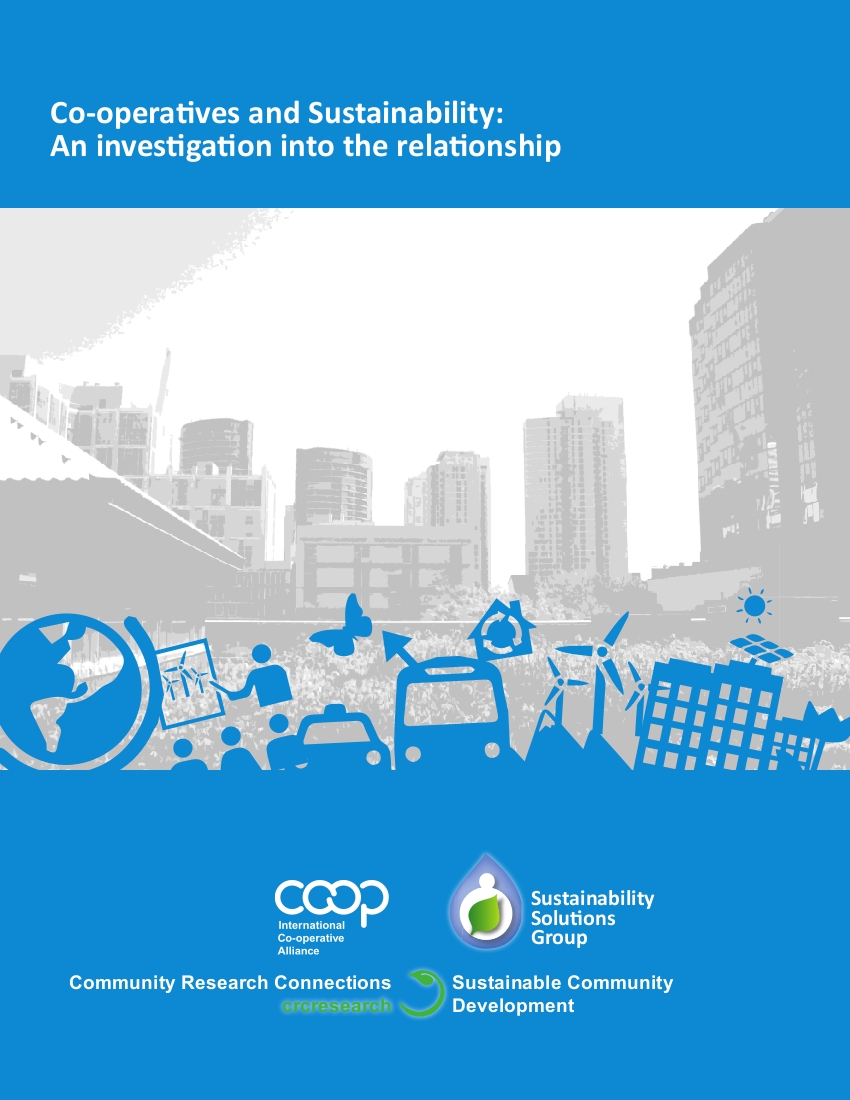Report Summary
At the end of September 2013, the UN’s Intergovernmental Panel on Climate Change (IPCC) issued its latest five-year assessment of the science on climate change. The IPCC concluded that it is extremely likely that human influence has been the dominant cause of climate change observed over the past fifty years and that increasing warming in the years to come will result in more frequent and longer heat waves, an increasing rate of sea-level rise and more inland flooding. In Europe, the International Federation of Red Cross and Red Crescent Societies found increasing numbers of people depending on food distributions and the spread of ‘quiet desperation’.
The United Nations sees hope in the co-operative model, noting that in the face of multiple crises and natural disasters, co-operatives have maintained high credit ratings, increased assets and turnover, and expanded their memberships base. In his statement for the International Day of Co-operatives, Guy Ryder, the Director General of the International Labour Organization (ILO), linked co-operatives with sustainable development. “As global attention focuses on the challenge of sustainable development, co-operatives can and must play a key role as creative enterprises expanding into new and innovative areas,” Mr. Ryder said, citing such spheres as recycling and renewable energy, providing people with know-how, inputs, finance and markets at fair prices with low environmental impact. This analysis begins an investigation of the relationship between sustainability and the co-operative model with the question: are co-operatives compatible with notions of sustainability?
We explored this question in two ways: we used a technical analysis to unearth the key concepts underlying co-operatives’ sustainability, exploring the degree to which the concepts are either compatible or overlap. We then created a platform to draw on the ‘wisdom of the crowd’, enabling people from around the world to describe how particular co-operatives promote sustainability.
Download the report
Contents
Report Summary
- Findings
Context
- The Blueprint for a Co-operative Decade
Research Method
- Methodological Limitations
Defining Sustainability
Do the co-operative principles represent sustainability?
- A sustainability yardstick
- Three different types of samples
Do co-operatives ‘walk their talk’?
Are leaders really leaders?
Bringing it all together: the co-operative star
Crowdsourcing
Observations
Going forward
The Project Team
Appendix 1: Seminal Papers on Sustainability
Appendix 2: Random Sample
Appendix 3: Leaders Sample
Appendix 4: Associations
Appendix 5: Sustainability Terms
Appendix 6: Preliminary Analysis
Appendix 7: Comparative Analysis
